In 2021, Billie Eilish made headlines for calling pornography “a disgrace.” A few days shy of 20 at the time, the pop star said she had started watching porn at the age of 11.
“I used to watch a lot of porn, to be honest,” she said. “I think it really destroyed my brain and I feel incredibly devastated that I was exposed to so much porn.”
It may have been shocking to hear a 19-year-old say she “used to watch a lot of porn” starting during—or even before—puberty, but it shouldn’t have been. The average age at which young people are first exposed to porn has been decreasing; for boys, it’s now about 14 years old, and some children see porn for the first time when they’re as young as 5.
Amid the perennial headlines of “sex positive” celebrities who have talked about how much they love porn, others besides Eilish have seen its dark side. The actor Terry Crews infamously saw his wife walk out the door because of his porn addiction, which prompted him to pursue rehab and therapy. Crews kicked the habit, and he and his wife are still together. The comedian Chris Rock also had negative things to say in his 2018 comedy special, admitting he had been addicted to porn. “What happens when you watch too much porn is you get desensitized,” he said. “When you start watching porn, any porn’ll do. ‘Ah, they’re naked. Woo-hoo.’ Then, later on, you’re all f—ed up. And you need a perfect porn cocktail to get you off.”
It’s hard to pin down exactly how many of us are watching porn, probably because most of us don’t want to talk about it. But a lot of us—perhaps most of us—are.
“Whether or not you think it’s moral, the fact is, people like porn,” wrote journalist Kirsten Weir for the American Psychological Association in 2014. “Various international studies have put porn consumption rates at 50 percent to 99 percent among men, and 30 percent to 86 percent among women.”
Like Rock, many viewers accustomed to regular porn consumption find themselves increasingly drawn to the hard-core stuff. And, contrary to popular belief, it isn’t just a problem for men. “In past years, there’s been an increase in the number of searches and consumption of more hardcore porn—largely by women,” reports Fight the New Drug, a nonprofit dedicated to combating pornography.
But while porn consumption can open the door to cheating (digitally or in real life) and discontent with real-life sex, there’s also a more subtle effect: It can actually rewire people’s brains. Pornography is subject to what economists would call the law of diminishing returns and what scientists might call an excess of easy dopamine: It’s easy to enjoy at first thanks to the quick dopamine hits, but the more you watch, the less exciting it seems, as your brain rewires to require more extreme content to stimulate the feel-good hormone. To compensate, a viewer might watch more hard-core media, which usually means violence (particularly against women). People who become addicted to pornography, as with other addictions, can also exhibit poor decision-making and suffer from emotional dysregulation.
Part of what makes compulsive porn use so easy to fall into is the low level of friction between users and the next dopamine hit. After all, until fairly recently, you would have to seek out a prostitute or otherwise put some effort into an illicit sexual experience, explains Nathan Shattuck, founder of the Atlanta-based company Soul Care Christian Counseling.
“Now, increasingly, you have [situations where] things didn’t go well in a meeting, you had a fight with your spouse, or you got a bad grade, and here’s this thing that’s a click away,” Shattuck told The Dispatch. “You can leave the hardness of life, have a big dopamine hit, and numb yourself. That’s just hard for a lot of people to resist.”
Quitting for good.
Some people and groups in America are trying to place limits on porn and its disturbing offshoots. So far, 16 states have made attempts to keep minors from accessing pornography online, and just this week, the House of Representatives passed the Take it Down Act, criminalizing the non-consensual sharing of nudes and the dissemination of pornographic AI deepfakes.
But the mundane reality of excessive porn consumption doesn’t lend itself easily to legislative cures. Rather, individuals looking to escape porn addiction will need to take matters into their own hands.
The internet erupted a couple of years ago when a video of House Speaker Mike Johnson revealed he uses an app called Covenant Eyes to keep himself and his son accountable about how they spend their time online. The debatable strangeness of father-son accountability partners aside, the idea of online programs that prevent users from accessing pornographic websites or send reports to their trusted friends to keep them on the straight and narrow is not so revolutionary. Nor is it just for high-profile Republicans: Retired basketball star Lamar Odom has used the app as well.
Other online resources aim to strike at the root of the problem. Fortify, which includes free accounts for “teens” and “allies,” proclaims: “The brain is changeable. And even when people are really stuck and hurting badly, research confirms deep healing can still happen.” The app boasts “comprehensive mental wellness” offerings, including daily check-ins, journaling, personalized insights, and teletherapy. Its sign-up page comes with the tagline, “Quit porn for good.”
While there doesn’t appear to be an independent study on Fortify’s efficacy, the company self-reports a 90 percent success rate in “significantly help[ing] users move toward more lasting change,” and commenters on Reddit say that the app helps if users are committed to letting it do so—and if it’s paired with other interventions such as therapy and offline accountability. Still, no intervention is perfect: For example, findings on internet content blockers are mixed, as they sometimes fail to flag explicit content and often permit motivated users to find ways around their parameters and suggestions.
The widespread availability of online resources, as well as sex therapists who specialize in pornography addiction, points to an uncomfortable truth: Porn can be extremely difficult to kick.
In 2016, the unlikely pair of Rabbi Shmuley Boteach and former Playboy model Pamela Anderson (an infamous early victim of nonconsensual porn dissemination), wrote an op-ed for the Wall Street Journal titled, “Take the Pledge: No More Indulging Porn.” The writers reported that “nine percent of porn users said they had tried unsuccessfully to stop—an indication of addiction that is all the more startling when you consider that the dependency rate among people who try marijuana is the same—9%—and not much higher among those who try cocaine (15%), according to the National Center for Biotechnology Information.”
And that’s just the ones who bothered to try.
‘A dangerously deceptive disease.’
To complicate matters, there is an ongoing debate about whether excessive pornography use can even be considered an addiction. Some of it is public: “Some people denied it,” Crews said when talking about his own porn habit. “They’d say, ‘Hey, man, you can’t be addicted to pornography.’” Some of it is also scientific: Brain studies of people who report excessive pornography use don’t necessarily cohere neatly with studies of drug addicts. Perhaps, rather than an addiction, obsessive porn use is a compulsion, some researchers argue.
At the end of the day, the semantics of the issue may not matter. Anyone who has struggled to kick a porn habit may say that either way, they needed help.
Devon Irvin, founder and CEO of Maryland-based Experience Victory Relationship and Life Coaching, says the word “addiction” is important — because the fear of that classification actually makes treatment much harder.
“One of the things that makes this so frustrating for people who have symptoms of porn addiction is that the medical community and mental health community do not even acknowledge that this is an addiction,” he told The Dispatch, noting that there is no DSM-5 official classification of pornography addiction as a disorder.
Irvin, who himself fought a porn addiction for 20 years and now specializes in helping people overcome the same thing, calls it a “dangerously deceptive disease” that manifests in ways people might not expect. Contrary to the idea of porn addiction is purely a moral concern, Irvin estimates that half of clients reach out to him because their porn consumption has resulted in erectile dysfunction.
But how do you quit? Irvin suggests that “one of the things critical to overcoming all addictions is you need to bond to something that’s healthy.” It is possible to rewire a brain accustomed to regular porn consumption, reassociating porn as something harmful rather than simply pleasurable. For this, you need outward support: “You really can’t do it by yourself.”
This means reaching out to close friends and people who have had similar struggles. “The most important early step is to find someone you can just be completely honest with,” says Shattuck, who specializes in sexual addiction treatment. “Until you do that, you’re almost inoculated against any good you receive because it feels like ill-gotten gain.” British comedian Marcus Brigstocke echoed this idea recently when he spoke out about his porn addiction. “It’s a terrible place to find yourself in because even if somebody looks you directly in the eyes and says, ‘I love you,’ you’re thinking, ‘That’s because you don’t know what I did,’” he said. “‘You wouldn’t love me if you knew.’”
Shattuck added that, while internet content blockers can be a useful tool early on, a “central remedy” is “real intimacy and healthy attachment.”
The process isn’t necessarily simple, and it depends on what the individual wants. Treatment for porn addiction can include support groups and various forms of counseling, from family therapy to cognitive behavioral therapy. Irvin says he has seen clients from athletes to pastors, business executives to clinical psychologists. Some clients come to him for religious reasons—Jewish, Muslim, or Christian users wanting to stop because of their faith. Others are simply looking for mastery over their own habits. “Nobody is exempt,” he warns.
Shame is also a powerful motivator; paradoxically, it can be the thing that keeps people coming back to porn, suggests Shattuck. “People become addicted to the shame,” he says. “You become dependent on powerful neurochemical experiences. Our body craves them, even negative ones.”
But even if it’s difficult, stopping a porn addiction isn’t impossible.
“You can be free,” Irvin says. “This is not your true self. Healing is available for you. The journey begins with hope, and once you find someone who has been through what you’re experiencing, that hope is all you need.”
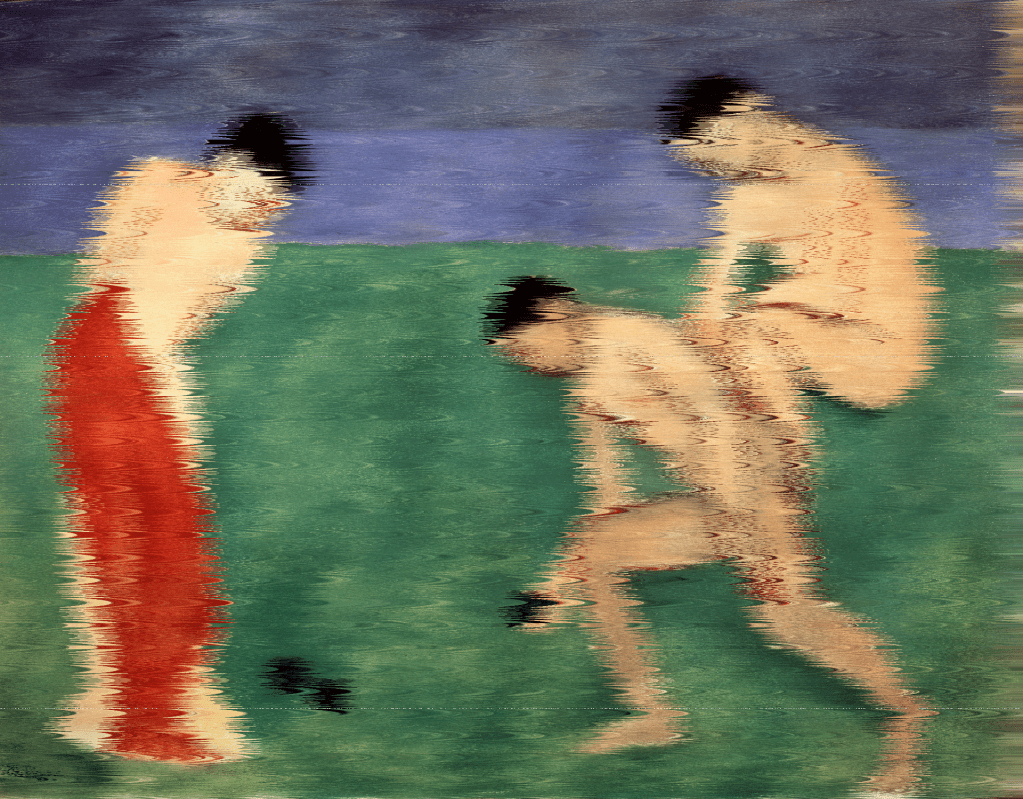
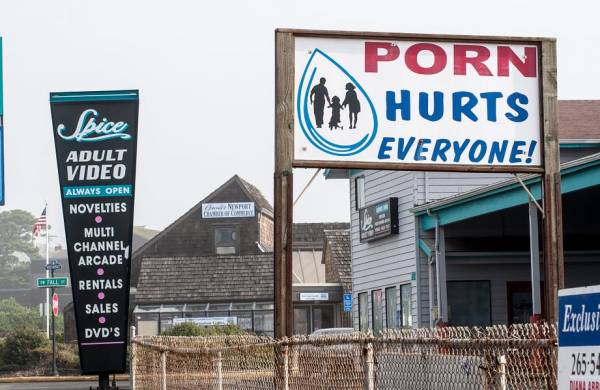
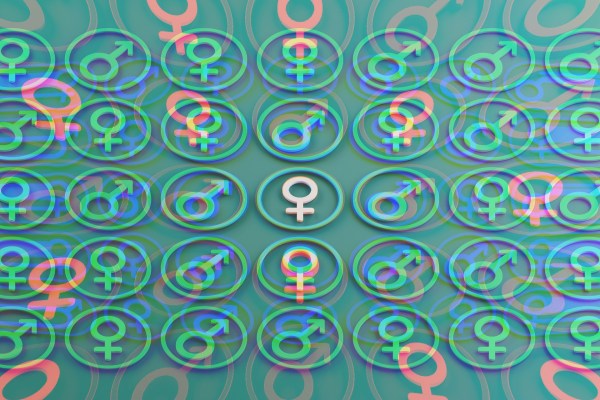
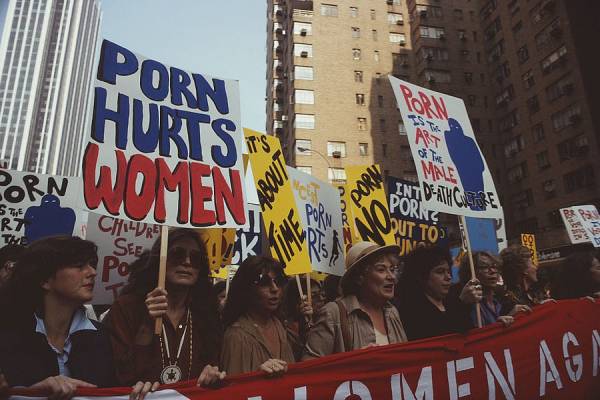


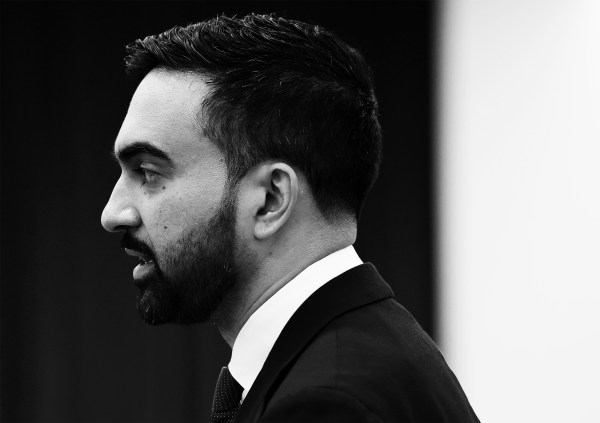


Please note that we at The Dispatch hold ourselves, our work, and our commenters to a higher standard than other places on the internet. We welcome comments that foster genuine debate or discussion—including comments critical of us or our work—but responses that include ad hominem attacks on fellow Dispatch members or are intended to stoke fear and anger may be moderated.
With your membership, you only have the ability to comment on The Morning Dispatch articles. Consider upgrading to join the conversation everywhere.